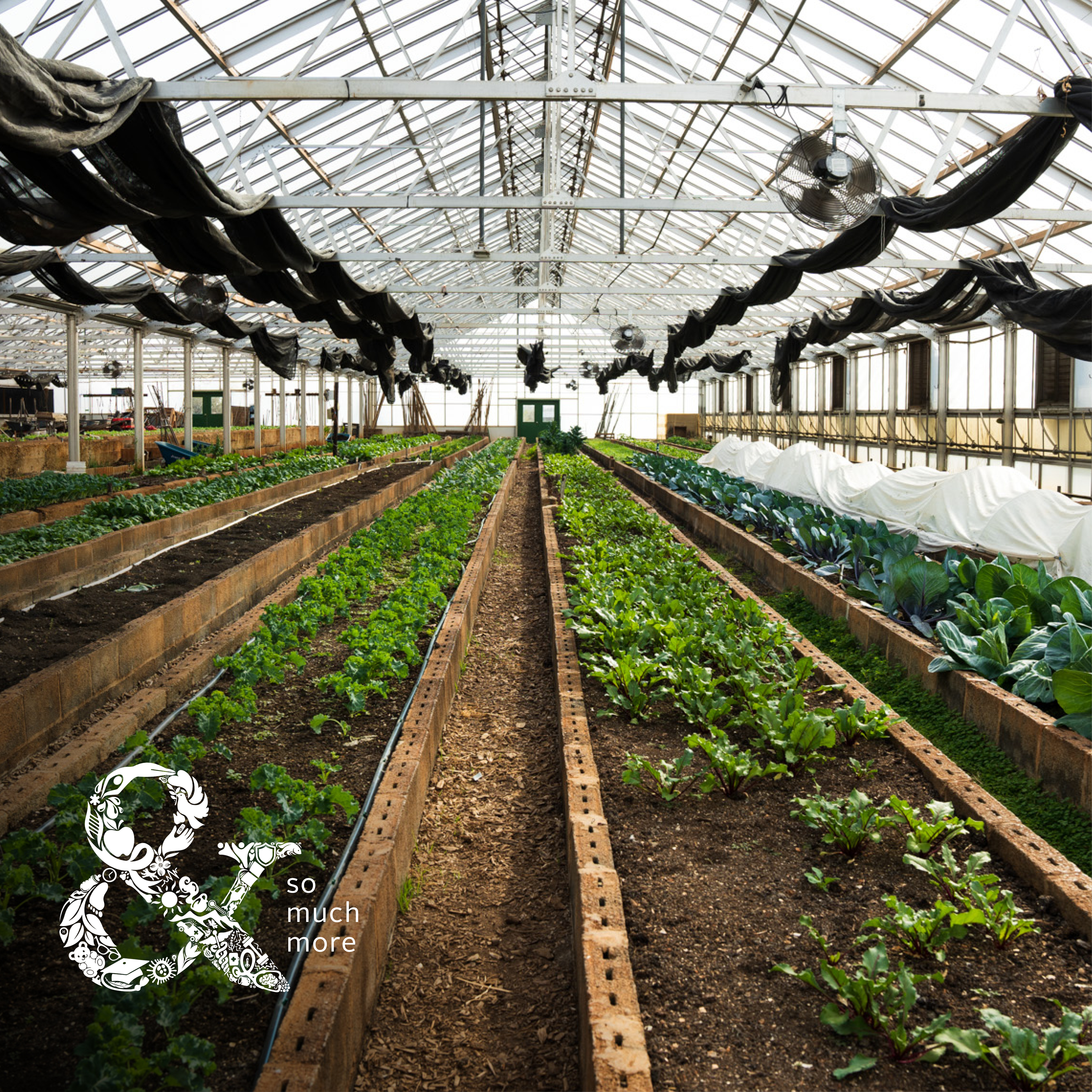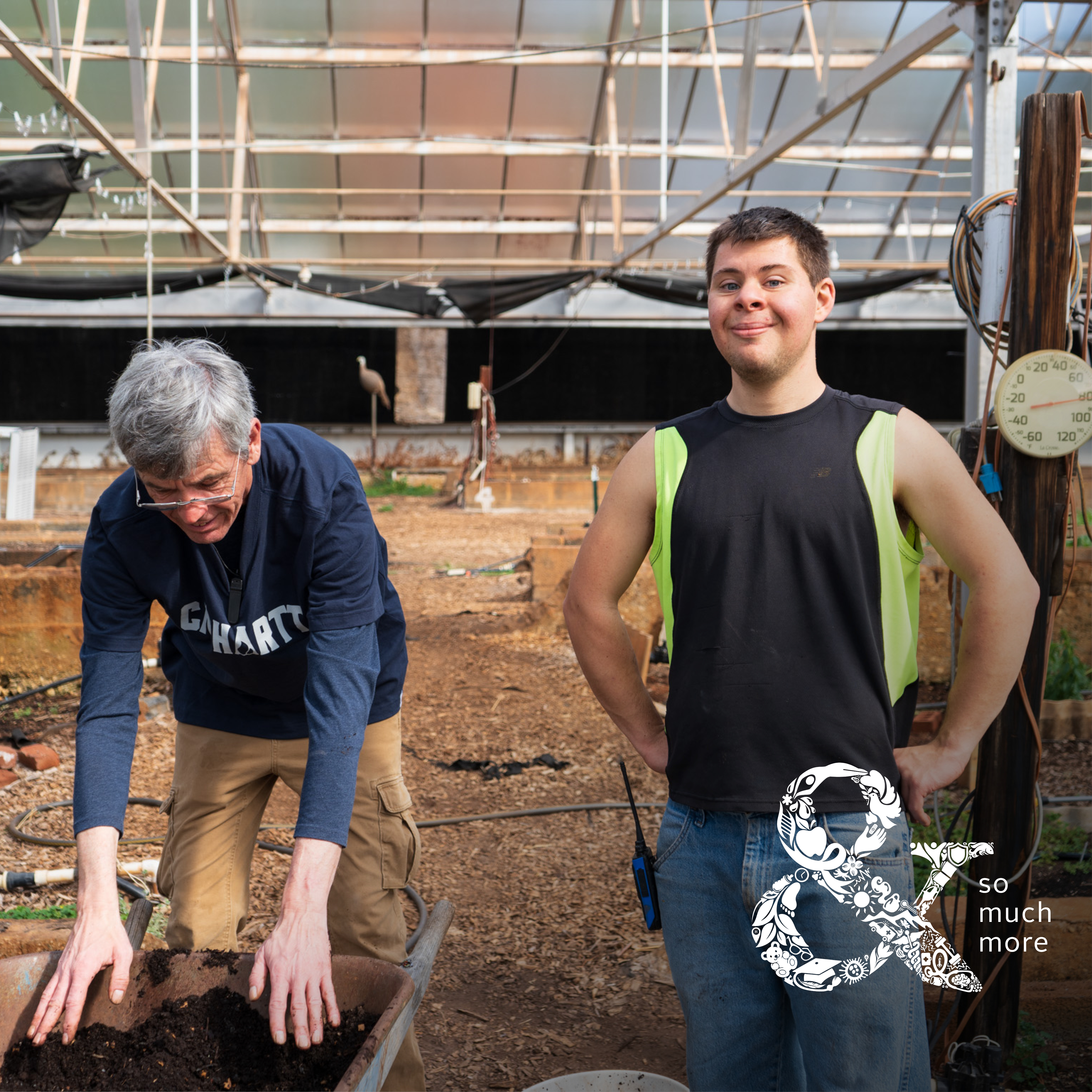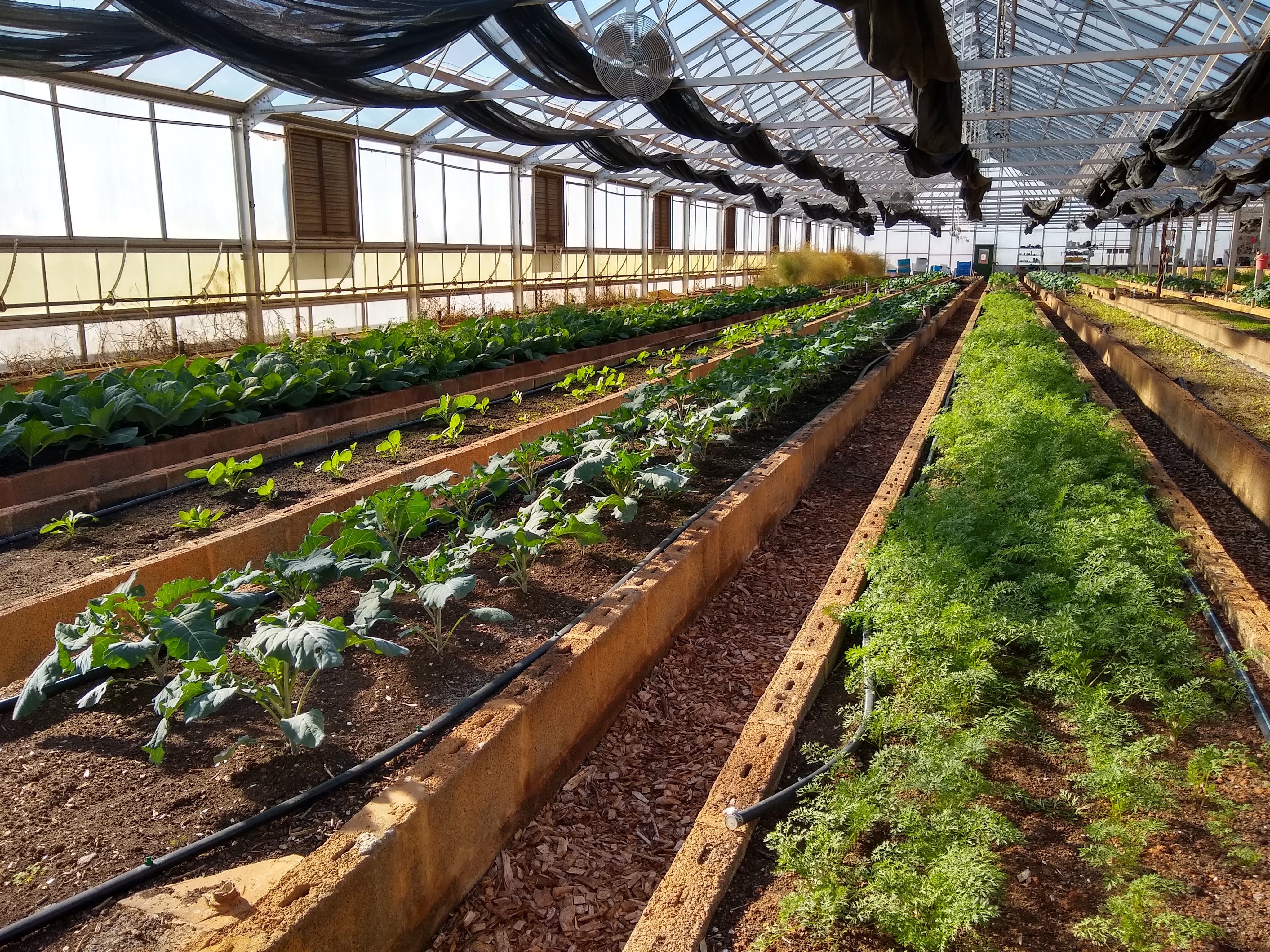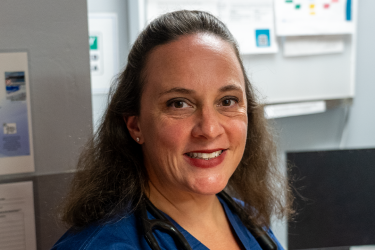Watch on YouTube
Transcript
Cami Smith: Hi, I'm Cami Smith from & So Much More, and I am here with Shelley Blades. She's the Executive Director of Lynchburg Grows. And so we are, we're here in Lynchburg in this beautiful greenhouse, and we're here as part of the series that we're doing with our community partners that Centra has come alongside of. And so within all of the communities that Centra touches, we have identified those organizations that do so much for the communities that they're located within. And we've identified specific needs within our communities. And so partnering with organizations like Lynchburg Grows helps us to ensure that those needs are being met in a really practical way. So without further ado, Shelley, why don't you tell us a little bit about yourself?
Shelley Blades: Yeah. So my name is Shelley Blades. I'm the executive director here at Lynchburg Grows. I started out as the farm manager eight years ago. And I was on a board with the then director, and I heard that the farm manager was leaving, and I was like, oh, this would be a really cool place to work. And they hired me and I was quickly from the farm manager to the executive director, and now I kind of do both. But it's a really special place to be and it touches so many of my personal interests and just also what we do for the community is really fulfilling.
Cami Smith: So what is at the heart of Lynchburg Grows? Do you guys have a specific mission? Can you tell us about that?
Shelley Blades: Yeah, we kind of have a double mission. One of our missions is to work with our community to provide access to healthy food. The other half of our mission is to provide purposeful employment to individuals with disabilities. And so those don't really seem like they talk to each other, but they really do. So all of our farmers with disabilities, they do all of the work here. So you can just see a few of our beds here, but they do the planting, the harvesting, bringing in the compost, packing, everything. So it gets into the community at the time that it needs to be. And then all of that produce goes back into the community in several different ways.
Cami Smith: So this is a lot of work. And you mentioned earlier there are nine greenhouses, so we're in one of nine enormous, beautiful greenhouses. And so that's a lot of work, that's a lot of harvesting. How long does all of this take? I'm sure ebb and flows of seasons, but ...
Shelley Blades: Yeah, exactly.
Cami Smith: What does that look like?
Shelley Blades: Yeah, so I mean, we're busy every day harvesting, and so we get here super early before it gets too hot because once it gets as hot as it is right now, it's very warm in here. This is an 80 degree day, so it's probably going to reach 100 degrees in here.
So of course we have to harvest early in the morning, and then the rest of the afternoon is packing all that produce, but it's kind of nonstop. We have two new greenhouses. We're in one of the newest greenhouses, which means it's a little bit smaller than our bigger greenhouses, so we can heat this greenhouse, which means we can extend our season, which means more food for the community throughout the year. So yeah, it doesn't really slow down.

Cami Smith: At all. And so you mentioned going into the community. Where specifically does the food go within the community?
Shelley Blades: So the other part of our mission is to provide access to anyone in the community. And so we really want to make sure that we believe that food is for everyone, not just people that can afford it and not just people that can't afford it. So we have a CSA program which stands for Community Supported Agriculture, which really doesn't clear it up at all. People are still very confused. We call it a veggie box, which still doesn't clear it up, but it's a way for people to invest in the farm. That investment is a way for us to grow all season, that gives us the money at the beginning of the season. And then their return on that investment is a box of produce each week throughout the growing season. So last year we had about 305 people that we served in that, and then we have a Fresh Rx program, which is a prescription produce program. Then we have donations and CSA scholarships. So yeah, we touch the community in lots of different ways for sure.
Cami Smith: I love that. This is so much more multifaceted than I even knew before we started having this conversation. That's so cool. And I mean, feel like this is such a huge need. I mean, you look around here, I don't know about any of our listeners, but I tried to have a little garden. I think when we were all stuck home and I was like, oh my gosh, I'm only going to have the food that I grow in my own yard. We started a garden and it's so difficult. I think I really took for granted the work that is done on a regular basis and then all of the different places that it touches. So I love that. Can you tell me a little bit more about the special needs side of things that you mentioned earlier?
Shelley Blades: Yeah. So we have always had employees with intellectual and physical disabilities working here. That's always been a part of our mission. It's how we got started. And so they're a huge part of what we do. It's, I guess officially called the Farm Coach Program. So we have coaches that work with our employees with disabilities. So every day they come in. We have five employees right now with disabilities, and they are on their own schedule. Some people work four days, some people work two days, but they come in, they get their assignment for the day, which is really hard work, and they meet with their coach. Their coach helps them make sure that they have all the tools they need, that they're feeling okay, that everything's good to go. And then it helps them throughout the day to complete those tasks. But it's more than just making sure that their career goals are met. We work with them for any sort of social thing they want to work on.
So we have some people that career wise, they want to learn to maybe lead a tour. And so that's not just, oh, I want to learn the history, but it's also I want to work on my communication skills. So we make sure that we're working on that throughout the day, throughout the year. We also have some people that want to have a boyfriend or girlfriend. And obviously we're not playing matchmaker, but we are helping facilitate that. So if someone wants to go on a date and they need a ride or they need help, just having someone there to make sure that they pay for the meal or whatever, we try to do that as well.
And it also creates a community which we really love. They're not just coming to work, but they're coming to work and they're hanging out with their friends, which is really cool and important. So we try to do things outside of work because they're also our friends. It's not like any sort of pity situation. We go to the movies, we go bowling, we have a Halloween party every year. We have a big Dirty Santa every year, which is wild and crazy.
Cami Smith: It sounds like so much fun.
Shelley Blades: So we really try to create a community and help each other.
Cami Smith: And a safe place because I feel like it's a lot to invite people into something like that. There has to be a consistency environment. So I love hearing what you guys are doing.
Shelley Blades: A place to say, "Hey, I want to learn to do this." And maybe it works, maybe it doesn't. But knowing that they have the support and a place that no one's going to make fun of them or ...
Cami Smith: Yes, that's huge.
Shelley Blades: Whatever, if they don't really accomplish what they're trying to accomplish. Yeah.

Cami Smith: It is very warm in this greenhouse. Okay. So I want to know more about how the community can be a part of this, but you mentioned something specifically about the prescription program, so can you elaborate?
Shelley Blades: Yeah. Yeah, I would love to. So Fresh Rx, like I said, is our prescription produce program. And I think we're going into our fifth year, maybe our sixth year. And this is not unique to us here in Lynchburg. Lots of places throughout the nation do this. It was started from something called Wholesome Wave, but what we do is we work with healthcare providers who work with uninsured or underinsured to low income patients. The doctor then recognizes the patients that could benefit from a diet change. They write them an actual prescription, which is on a brochure just like that, and they bring it to us and we fill the prescription by signing them up for a four to six week or eight week class, depending on who's teaching. And then in that class there's nutrition education, cooking demonstrations, and each week they also get a bag of produce from the CSA and from the farm to take home and try out some of the recipes that we used.
We know that there are lots of barriers to access when it comes to food insecurity. Food insecurity is really just a result of poverty, and redlining, and all these things that have been happening for ages. And so it's not just getting your hands on the food, the access issue. It's what to do with the food. Do you have the time? Do you have the spices? Do you have a cutting board? Do you have knife skills? All of these things.
So we try to eliminate as many barriers as possible. We provide bus passes if that's something that would be helpful. We also do a little inventory at the beginning of each session. So we ask patients or participants what they have in their kitchen, what they need, and then we try to provide as much of that as possible. Obviously, we can't provide a stove, but we do try to provide things like ninja bullets or magic bullets.
Cami Smith: Yes, those are amazing.
Shelley Blades: They're great because you can make salad dressings, you can make bean dips. You can make all these things that are quick and easy and healthy. And then we also try to provide all the spices. So if we present a recipe and it calls for vegetable oil, garlic, salt, and cumin, we provide all of that. So we really want to make sure that people are walking away from the program equipped and empowered and ready to make the decision to be healthier if that's what they want to do for their lives.
Cami Smith: And that's such an incredible perspective that you're sharing because it can be so hard to know how to better take care of yourself because I mean, I'm sure there's a desire there, you want to. But I mean, McDonald's is easy and fast food, it's just so easy to grab and go. To be equipped to do this for yourself is a really big deal. That's life changing for so many people.
Shelley Blades: We really do encourage a balanced diet. So sometimes if you're on the run and McDonald's is there and you have kids in your car and everyone's hungry, I get it. I do the same thing, not with my kids, but for myself, because I don't have kids. But if I want McDonald's and I'm hungry, I'm going to get it. But I'm also going to make sure that I get some other healthier choices into my diet that day or that week. So people are people, we have to make the decisions that we need to in the moment.
Cami Smith: Absolutely. Yeah. So Shelley, what can you tell me about, so we're in Lynchburg. How can the community be a part of this? Can they be a part of this?
Shelley Blades: In so many ways. So last year we had over 2,000 volunteer hours donated, so we really rely heavily on our volunteers. So that's definitely a way that people could be involved. Our CSA is a way to get involved and not have to volunteer, but you can purchase our produce. And then all of that money comes back to just supporting the farm operations. We also take donations. So if you don't want the produce and you don't want to volunteer, but you want to give money, you can do that. We are also going to have a plant sale in April, at the end of April, and we're going to be selling all sorts of plants so we can sell lettuces, tomatoes, also houseplants, perennials.
Cami Smith: I love this. So are these plants that you can go home and put in your garden plants? I'm asking selfishly.
Shelley Blades: Yes.
Cami Smith: Or are these already grown plants that I take home and eat immediately?
Shelley Blades: No. So we're not going to be selling any harvested produce that day, but we'll be selling plants at all stages of their life. So little baby plants that you need to take care of, but then stuff that you could just take home and plant that day.
Cami Smith: Yay. Yeah. All right. Awesome. Well, Shelley, thank you so much.
Shelley Blades: Thank you.
Cami Smith: I hope those of you are who are listening can go and check out more about Lynchburg Grows. We'll go ahead and share their website in our details and thanks for listening today on & So Much More.
Shelley Blades: Thank you.




